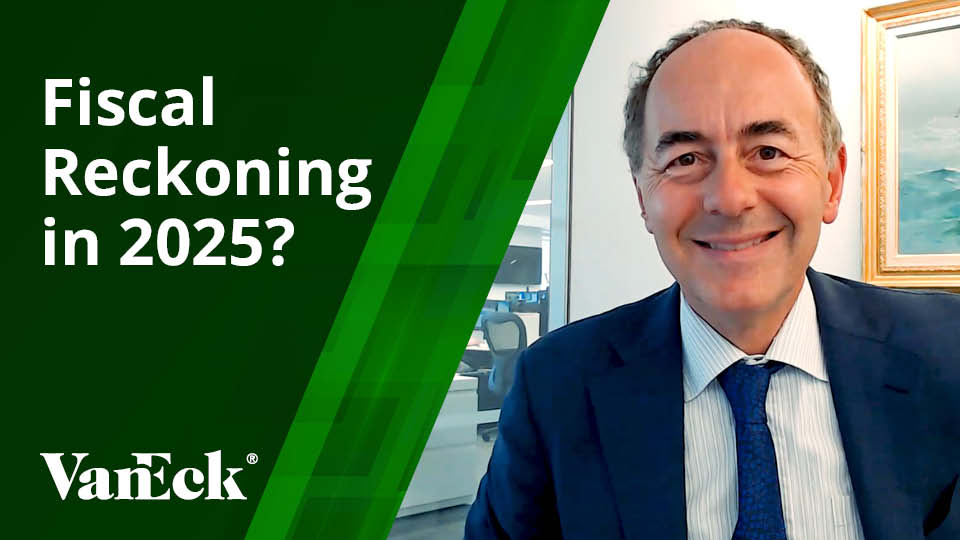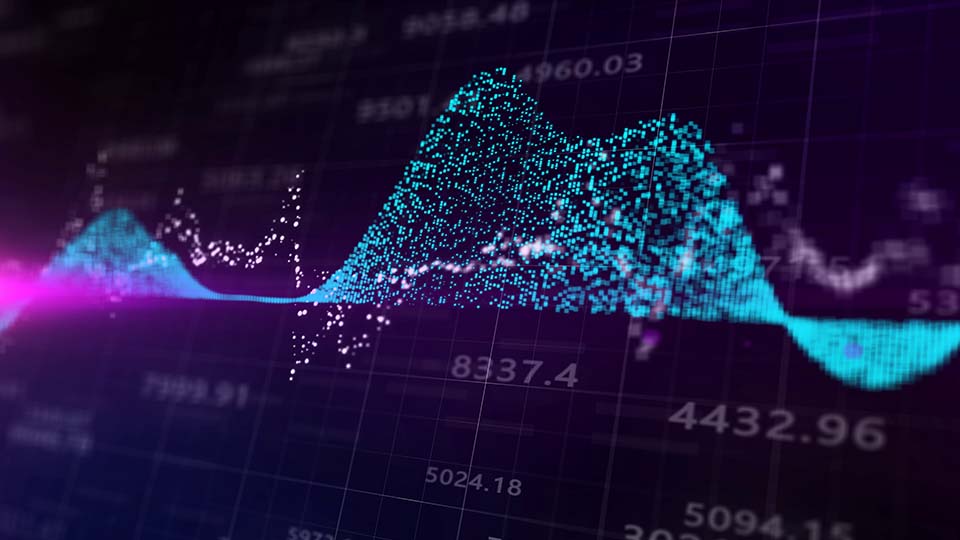In the News: Israel’s Judicial Crisis
August 28, 2023
Watch Time 9:30 MIN
Despite Israel’s impending judicial crisis, Israel’s tech industry continues to attract global interest and investment.
JP: Hey everybody, this is JP Lee from VanEck. I'm very grateful, happy to be here today with Mr. Steven Schoenfeld from Market Vector. And we're here today to talk about Israel.
So in the news, we're hearing a lot about something that's going on with the judicial crisis. That's what I'm kind of reading in the news. Can you give me a little overview of what's happening as it relates to the judicial crisis in Israel?
Steven: Sure, so Israel has a coalition government and the coalition has decided to change the rules of the road and disempower the Supreme Court, some of the checks and balances, and it's opposed by probably a majority of the country. Unlike the United States, which has three branches of government, Israel effectively has two. And by taking some power away from the Supreme Court, they're giving it to the government. That's the government today, it could go to the next government, but the broad swaths of the population are very concerned about this. There have been massive protests for seven straight months and the first piece of legislation was passed in late July and now will be reviewed by the Supreme Court in September and this could spark effectively a constitutional crisis.
JP: So how do you see this affecting Israel's economic standing? Are there opportunities that might come out of this? Boots on the ground, what are you seeing?
Steven: Going into this year, most people expected a slowdown, but the combination of uncertainty, some strikes, protests, and this government has been less fiscally conservative. And so the GDP looks like it's going to be 3% or less this year. You've had weakness in the housing market. And of most interest to investors, Israeli stocks, while they haven't fallen, they've not participated nearly as much in the rally we've seen in U.S. equities and global equities and global tech stocks.
Israeli tech is up about 5%, whereas U.S. and global tech is more like up 25%, 30%. Israel broadly defined is about flat using our index compared to developed markets, which is up about 15%.
JP: Now, what's the worry for an investor who maybe likes Israel but sees the judicial things happening?
Steven: So there's two categories. One is if foreign investors see Israelis losing some confidence in their own innovation ecosystem, well that's a concern. But the second is simply this current government is not as fiscally responsible, even though it's headed by a prime minister who led Israel's economic reforms in the 90s, he's kind of hostage to pretty far right parties and he's tilting the budget toward education for Orthodox parts of the community. He's not funding the Innovation Authority as much. And so whether you're a foreign investor, foreign credit rating agency, foreign investment bank, a lot more concern than a year ago. However, the fundamental story behind Israeli tech and the innovation that continues, it hasn't stopped. And so the real question is, When will there be an inflection point? What will be the triggers to that inflection point? And when that happens, and I do believe it's a when, not an if, how quickly will Israel catch up to the rest of the world?
JP: So going back to the tech story, you know, we've seen anecdotal stories in the news about big companies investing in Israel, right? You know, the tech conglomerates., So Intel makes a massive investment in Israeli operations What kind of opportunities is that create in the local market?
Steven: So this is something we track very carefully Market Vector has one of the only databases of foreign companies activity in Israel. And in the early days, it was mostly Intel. Apple was very early in, but Intel's been in Israel since the ‘70s. They've designed almost all their most advanced chips there and they hire, and they hire some of the best people. And that means it's an investment in Israel's R&D and it's human capital. People who've worked at Intel will then go found their own companies. Intel now is also building a major fab in Israel, along with the investment in the U.S. Google is making Israel the center of one of its major cloud initiatives. Every major automaker has R&D centers for autonomous driving, electric cars, accident avoidance, and new types of efficiency. So you pick your industry and you have major global companies wanting to be part of that ecosystem. That ecosystem is fluid. You have Israeli knowledge flowing into the foreign companies, but knowledge gained from the foreign companies flowing into the Israeli tech ecosystem. One other really interesting point with this is that it used to be mostly American and European companies. Now you have Asian companies coming in. Japanese automakers, Korean solar companies, and it's a much more global participation in this tech ecosystem.
JP: Is EV a part of this? I mean, is there a lot of solar EV research and development being done there?
Steven: So Israel's in the desert, so they got plenty of sun. But they don't have so much land. So one of the most interesting Israeli companies, a top name in our index, is SolarEdge. SolarEdge doesn't make the solar panels. They make the solar panels more efficient and all the technology connected with it. And just a couple of weeks ago, SolarEdge openly signed a joint venture to develop a business in Saudi Arabia, a country Israel doesn't even have diplomatic relations with. So the attraction within the region toward Israeli technology is one of the long-term positive fundamental trends that hasn't been slowed down by the current judicial crisis.
JP: I wonder if you could touch on some of the other maybe non-tech sectors or industries that are really happening in Israel right now.
Steven: So Israel has a young, growing population. It's going to hit 10 million citizens sometime by the end of next year. They shop, they buy food, they buy houses, they take out mortgages and they buy insurance. So domestic companies, whether in financial services, retail, real estate, etc, are doing well with the growth of the population. A whole other side of Israel's economy is what I would call non-tech exporters, so globally significant companies. Teva Pharmaceutical is one of the largest generic drug companies based in Israel. Israel Chemicals is extracting potash from the Dead Sea, the lowest spot on the earth, and exporting it for fertilizer around the world. And you have a number of those companies that are quite relevant and also in the portfolio.
JP: VanEck has the VanEck Israel ETF, which invests in companies that are from Israel or doing a lot of business within Israel. So that index is a Market Vector index. maybe it would be helpful if you walk us through the methodology of the BIGI index, and then maybe why that's a good idea to get that Israeli exposure in your portfolio.
Steven: So, way back in 2011, we developed the BlueStar Israel Global Index, or BIGI, and it was the first index that included Israeli companies, whether they were listed in Tel Aviv, New York, NASDAQ, London, even Singapore or Hong Kong. Why is that important? Well, because some of the most important Israeli tech companies list abroad. And so we decided to build an index that was broad, deep, pure and complete. So these are all Israeli companies by our definition. And in doing so, we also screen for liquidity, screen for minimum size, and we also cap the biggest companies so you don't get any one single company dominating. And what that means is we have an index that has been live since 2011 with history to 2000. So 22 years of history, the most consistent index in that area. And it's tracked by the VanEck Israel ETF [ISRA]. I believe the ticker is ISRA, the first four letters of the country, so it's easy to remember. And that provides investors with complete and broad exposure to all the dynamic sectors of Israel's economy in a very liquid, investable format.
JP: Well, I really appreciate your time today. Great to see you, great to talk to you about Israel, and I know it's very dear to your heart. And thanks everybody for watching, and have a great day.
Steven: Thank you.
IMPORTANT DISCLOSURE
The views and opinions expressed are those of the speaker and are current as of the video’s posting date. Video commentaries are general in nature and should not be construed as investment advice. Opinions are subject to change with market conditions. This is not an offer to buy or sell, or a recommendation to buy or sell any of the securities, financial instruments or digital assets mentioned herein. The information presented does not involve the rendering of personalized investment, financial, legal, tax advice, or any call to action. Certain statements contained herein may constitute projections, forecasts and other forward-looking statements, which do not reflect actual results, are for illustrative purposes only, are valid as of the date of this communication, and are subject to change without notice. Actual future performance of any assets or industries mentioned are unknown. Information provided by third party sources are believed to be reliable and have not been independently verified for accuracy or completeness and cannot be guaranteed. VanEck does not guarantee the accuracy of third party data. The information herein represents the opinion of the author(s), but not necessarily those of VanEck or its other employees.
The BlueStar Israel Global Index® is the exclusive property and a trademark of BlueStar Global Investors LLC and has been licensed for use for certain purposes by Van Eck Associates Corporation for VanEck Israel ETF (the "Fund") based on the BlueStar Israel Global Index®. The Fund is not sponsored, endorsed, sold or promoted by BlueStar Global Investors LLC, and BlueStar Global Investors LLC makes no representation regarding the advisability of trading in the Fund.
* Teva Pharmaceutical Industries Ltd. comprised 5.97% of ISRA’s net assets as of 8/23/2023
* Solaredge Technologies Inc. comprised 5.15% of ISRA’s net assets as of 8/23/203
An investment in the VanEck Israel ETF (“ISRA”) may be subject to risks which include, but are not limited to, special risk considerations of investing in Israeli issuers, foreign securities, foreign currency, depositary receipts, information technology sector, financials sector, micro-, small- and medium-capitalization companies, equity securities, market, operational, index tracking, authorized participant concentration, no guarantee of active trading market, trading issues, passive management, fund shares trading, premium/discount risk and liquidity of fund shares, non-diversified and index-related concentration risks, all of which may adversely affect the Fund. Foreign investments are subject to risks, which include changes in economic and political conditions, foreign currency fluctuations, changes in foreign regulations, and changes in currency exchange rates which may negatively impact the Fund's return. Micro-, small- and medium-capitalization companies may be subject to elevated risks.
Investing involves substantial risk and high volatility, including possible loss of principal. An investor should consider the investment objective, risks, charges and expenses of a Fund carefully before investing. To obtain a prospectus and summary prospectus, which contain this and other information, call 800.826.2333 or visit vaneck.com. Please read the prospectus and summary prospectus carefully before investing.
No part of this material may be reproduced in any form, or referred to in any other publication, without express written permission of Van Eck Securities Corporation.
© 2023 Van Eck Securities Corporation, Distributor, a wholly owned subsidiary of Van Eck Associates Corporation.
666 Third Avenue, New York, NY 10017
PMI – Purchasing Managers’ Index: economic indicators derived from monthly surveys of private sector companies. A reading above 50 indicates expansion, and a reading below 50 indicates contraction; ISM – Institute for Supply Management PMI: ISM releases an index based on more than 400 purchasing and supply managers surveys; both in the manufacturing and non-manufacturing industries; CPI – Consumer Price Index: an index of the variation in prices paid by typical consumers for retail goods and other items; PPI – Producer Price Index: a family of indexes that measures the average change in selling prices received by domestic producers of goods and services over time; PCE inflation – Personal Consumption Expenditures Price Index: one measure of U.S. inflation, tracking the change in prices of goods and services purchased by consumers throughout the economy; MSCI – Morgan Stanley Capital International: an American provider of equity, fixed income, hedge fund stock market indexes, and equity portfolio analysis tools; VIX – CBOE Volatility Index: an index created by the Chicago Board Options Exchange (CBOE), which shows the market's expectation of 30-day volatility. It is constructed using the implied volatilities on S&P 500 index options.; GBI-EM – JP Morgan’s Government Bond Index – Emerging Markets: comprehensive emerging market debt benchmarks that track local currency bonds issued by Emerging market governments; EMBI – JP Morgan’s Emerging Market Bond Index: JP Morgan's index of dollar-denominated sovereign bonds issued by a selection of emerging market countries; EMBIG - JP Morgan’s Emerging Market Bond Index Global: tracks total returns for traded external debt instruments in emerging markets.
The information presented does not involve the rendering of personalized investment, financial, legal, or tax advice. This is not an offer to buy or sell, or a solicitation of any offer to buy or sell any of the securities mentioned herein. Certain statements contained herein may constitute projections, forecasts and other forward looking statements, which do not reflect actual results. Certain information may be provided by third-party sources and, although believed to be reliable, it has not been independently verified and its accuracy or completeness cannot be guaranteed. Any opinions, projections, forecasts, and forward-looking statements presented herein are valid as the date of this communication and are subject to change. The information herein represents the opinion of the author(s), but not necessarily those of VanEck.
Investing in international markets carries risks such as currency fluctuation, regulatory risks, economic and political instability. Emerging markets involve heightened risks related to the same factors as well as increased volatility, lower trading volume, and less liquidity. Emerging markets can have greater custodial and operational risks, and less developed legal and accounting systems than developed markets.
All investing is subject to risk, including the possible loss of the money you invest. As with any investment strategy, there is no guarantee that investment objectives will be met and investors may lose money. Diversification does not ensure a profit or protect against a loss in a declining market. Past performance is no guarantee of future performance.
Related Topics
Related Insights
April 17, 2024
February 26, 2024


